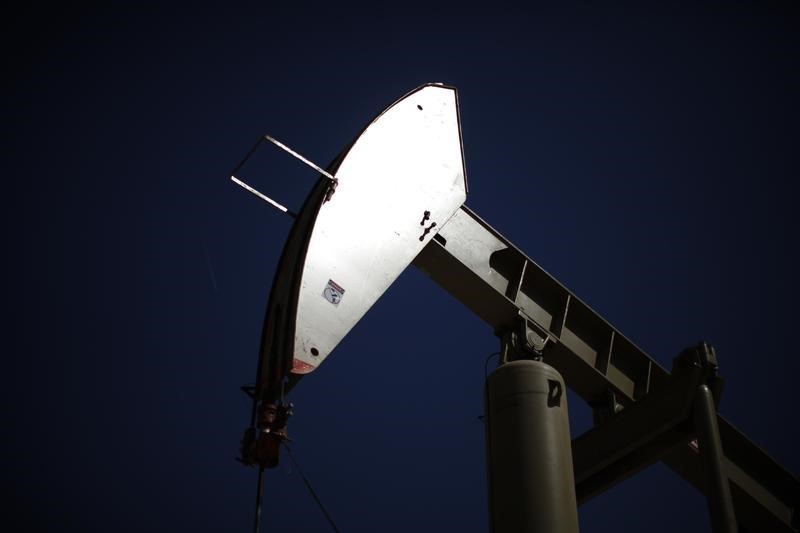By Peter Nurse
Investing.com -- Crude oil prices fell Thursday, after four days of gains, as traders fretted about the potential for a rise in Iranian supplies even after a bigger-than-expected draw in U.S. crude oil supplies.
By 9:10 AM ET (1410 GMT), U.S. crude futures traded 0.2% lower at $66.09 a barrel, while the international benchmark Brent contract fell 0.4% to $68.47.
U.S. Gasoline RBOB Futures fell 0.4% at $2.1425 a gallon.
“The potential for a return of Iranian oil supply into the market has been keeping oil prices from gaining further,” said analysts at ING, in a note.
World powers continue to conduct talks in Vienna aimed at potentially reviving a nuclear agreement with Iran. A deal could pave the way for the lifting of sanctions allowing the Persian Gulf country to export its oil reserves, the world’s fourth largest, once more.
The additional supply, potentially around one million barrels per day, will undoubtedly be a major issue for a June 1 meeting of the Organization of the Petroleum Exporting Countries and allies, a group known as OPEC+.
That said, the general tone surrounding the crude market remains positive as the global economy, and the U.S. in particular, recovers from the pandemic.
The number of Americans filing new claims for unemployment benefits dropped more than expected last week, falling to 406,000 for the week ended May 22, compared to 444,000 in the prior week. That was the lowest since mid-March 2020 and kept claims below 500,000 for three straight weeks.
Wednesday’s U.S. crude oil supply data from the Energy Information Administration showed a draw of 1.662 million barrels for the week to May 21, while there was also a 1.745-million-barrel draw in U.S. gasoline inventories, with U.S. fuel demand progressing towards a return to pre-Covid-19 consumption levels.
“Physical demand has been improving in both Europe and the U.S. as a slowdown in new Covid cases has been pushing up mobility. The start of the summer driving season in the U.S. from next week onwards could further support crude oil demand in the country,” ING added.
Even India, the world’s third-largest oil importer, has reported a marked slowdown in new cases over the past few weeks, which could help ease some of the mobility restrictions next month.
One potential problem could come from the corporate sector. Royal Dutch Shell (LON:RDSa) was ordered by a Dutch court to drastically deepen its planned greenhouse gas emission cuts, while both Exxon Mobil (NYSE:XOM) and Chevron (NYSE:CVX) suffered shareholder rebellions over the oil giants not moving fast enough to diversify away from fossil fuels.
